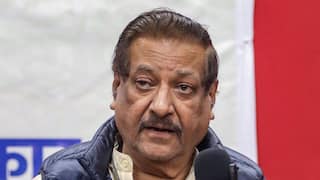RBI Governor Set To Announce Bi-Monthly Monetary Policy Today. Know What To Expect
The hike in key lending rate by 35 basis points is expected as the inflation continues to stay above its tolerance band with markets closely watching on the outlook on growth and prices for direction

Watch out for the Monetary Policy statement of RBI Governor @DasShaktikanta at 10:00 am on December 07, 2022
— ReserveBankOfIndia (@RBI) December 6, 2022
YouTube: https://t.co/W2pMlmwrTB
Post policy press conference telecast at 12:00 pm on same day
YouTube: https://t.co/VHm67r4UtC#rbipolicy #rbigovernor #monetarypolicy
What’s expected in the MPC announcement?
A strong two-thirds majority in a Reuters poll believe it will be too soon for the central bank to take its eye off inflation, which slowed to 6.77 per cent in October but has stayed above the upper end of the RBI's 2-6 per cent tolerance band in 2022.
The central bank's outlook, which will accompany the rates decision, will be an important pointer to future policy moves, economists said, as per the news agency.
Even as global crude oil prices continued to fall in recent months but yet to be reflected in domestic prices. Brent crude has fallen in six of the last seven months and was trading at around $83 a barrel versus its peak of $139 touched in March.
"Though global oil prices are lower, pump prices in India have not changed and remained at the same levels since May 2022 and unless pump prices come down, it won't have any direct implications for domestic inflation," said Indranil Pan, chief economist, Yes Bank, according to the report.
In its last policy statement on Sept. 30, the RBI's Monetary Policy Committee projected GDP growth for the 2022/23 financial year (April-March) at 7per cent and retail inflation at 6.7 per cent.
Bank of Baroda chief economist Madan Sabnavis believe that it does not see the RBI reducing its inflation forecast, and pointed out that though global oil prices have come down, the government has not relaxed duties or taxes. "Hence, the consumer is still paying the same price and has not derived any benefit from declining oil prices."
India imports more than two-thirds of its oil requirements and movements in global crude have a direct impact on the country's trade and current account balances as also its currency and domestic inflation.






































